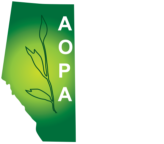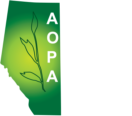TOC Cert – FAQs
Q: Why should I certify my operation as organic?
A: Products must be certified in order for them to be sold as organic. Certification is needed to ensure that products labeled as “organic” are produced and handled in accordance with specified organic standards. Certification creates trust in organic labeling and promotes fair competition in the market place.
Q: How much will certification cost?
A: Certification costs vary and will depend on the total organic sales of an operation. Other costs including membership, re-application, private label licensing and inspection fees will vary as well. Please contact TCO Cert to receive information about fees.
Q: How long will it take to get my operation certificate?
A: Once TCO Cert receives a complete certification application and payment, the process will take approximately 60 days. There are several different factors that can affect this process, including the completeness of the application, the ability to demonstrate compliance at the time of the inspection, and the location of the operation. One important point to remember is that products may be certified organic only if there has been no use of prohibited materials for 36 months prior to the first organic harvest.
Q: Are genetically modified organisms allowed in organic farming?
A: No. The use of products made from organisms that have been modified by genetic engineering techniques is prohibited.
Q: What is accreditation?
A: Accreditation is a procedure by which an authoritative body (an accreditation body) evaluates and gives a formal recognition (an accreditation certificate) that a certification body is competent to carry out certification of organic operators and activities. If a country has implemented regulations for labeling of organic products, governments or national accreditation bodies accredit certification bodies operating in that country.
Q: When does my certification expire?
A: Your COR certification will remain in effect until it is surrendered, suspended, or cancelled and will not expire; however, COR requires annual update forms and inspections are required to maintain your organic certification.
Q: Can wild harvested products be certified?
A: Yes, TCO Cert offers certification for wild harvested products as well as other areas such as apiary, mushroom/sprout, garden/greenhouse, maple syrup and coffee.
Q: What is the difference among the various organic accreditations?
A: Choosing which programs to certify to depends on where you are certifying and selling your products. Each program offers different advantages to meet the various needs of those wanting certification.
Why Certified Organic
The desire of farmers, fruit and vegetable growers and others to produce quality foods in a manner that builds the soil and does not pollute the environment is the driving force in choosing the organic approach.
Consumer demand is the key reason for certified organic–a need to ensure that products purchased meet important standards in the journey from the field to the table. Please refer to our Organic Links page to find more information on Canadian and International standards.
There is a strong and steady growth worldwide in the consumption of certified organic products. Certified organic products return a premium price to the producer and provides quality food to the increasingly health conscious consumer.
Look for certified organic products in your favourite supermarket or farmers market.

